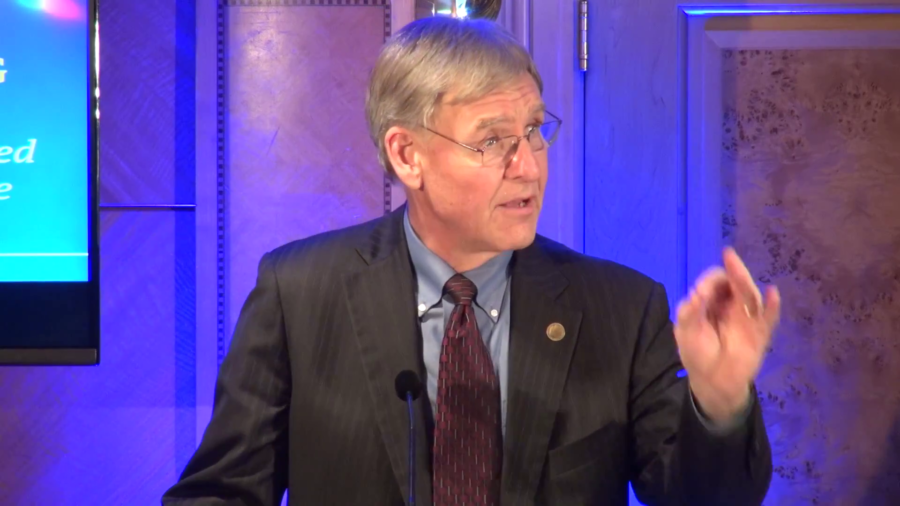Douglas Van Houweling: Like all of my colleagues, I’m extraordinarily honored to be with you tonight to share this honor. I want to thank the Internet Society and all of you who have worked together to make the Internet possible.
I also want to thank you for recognizing the work of my colleagues at Merit, at Internet2, the global higher education research community that has given us so much of what we now know as the Internet. You’re really recognizing their effort as you recognize all of us here tonight.
I want to say a few words about the Internet, where it’s I think going to continue to make a difference. I think of the Internet going forward as really the interpersonal Internet. One of the things that we have discovered over and over again, as we build networks that move electrons around and photons around, is that human beings use those to connect with one another. We think we’re connecting computers together, it turns out we’re connecting human beings together.
The Internet allows us to diversify our relationships. Witness tonight. To deepen our affiliations. And to increase global productivity. There’s now something else happening. It’s the Internet of Things, which I believe is going to make us able to manage our planet more effectively and to concentrate our efforts on the things that really matter rather than spending our time holding a steering wheel and driving our car, increasing safety and allowing us to focus on more creative and non-routine work.
But you know both the interpersonal Internet and the Internet of Things offer opportunities for corporate and government intrusion into our lives. For solutions that are based primarily on private as opposed to public benefit. As we think about our future together, we need to think about the way we can create solutions, both to advancing in the face of the opportunity that we’re offered, and also dealing with the threats that are inherent in those advances.
I am personally convinced that strengthening organizations like ISoc, ICANN, IETF, the World Wide Web Consortium, the national research and education networks that have led to so much of the advance, and to the higher education and research community from which so many of us sprung, are key to seeing both those advances and dealing with the challenges. We have together led innovation in governance in the past. We must lead into the future. As Mike says, our job is to sustain the environment that we’ve helped create and move it forward. I look forward to working with all of you and want to thank the Internet Society for giving us all the opportunity to accomplish these very worthwhile goals. Thank you very much.
